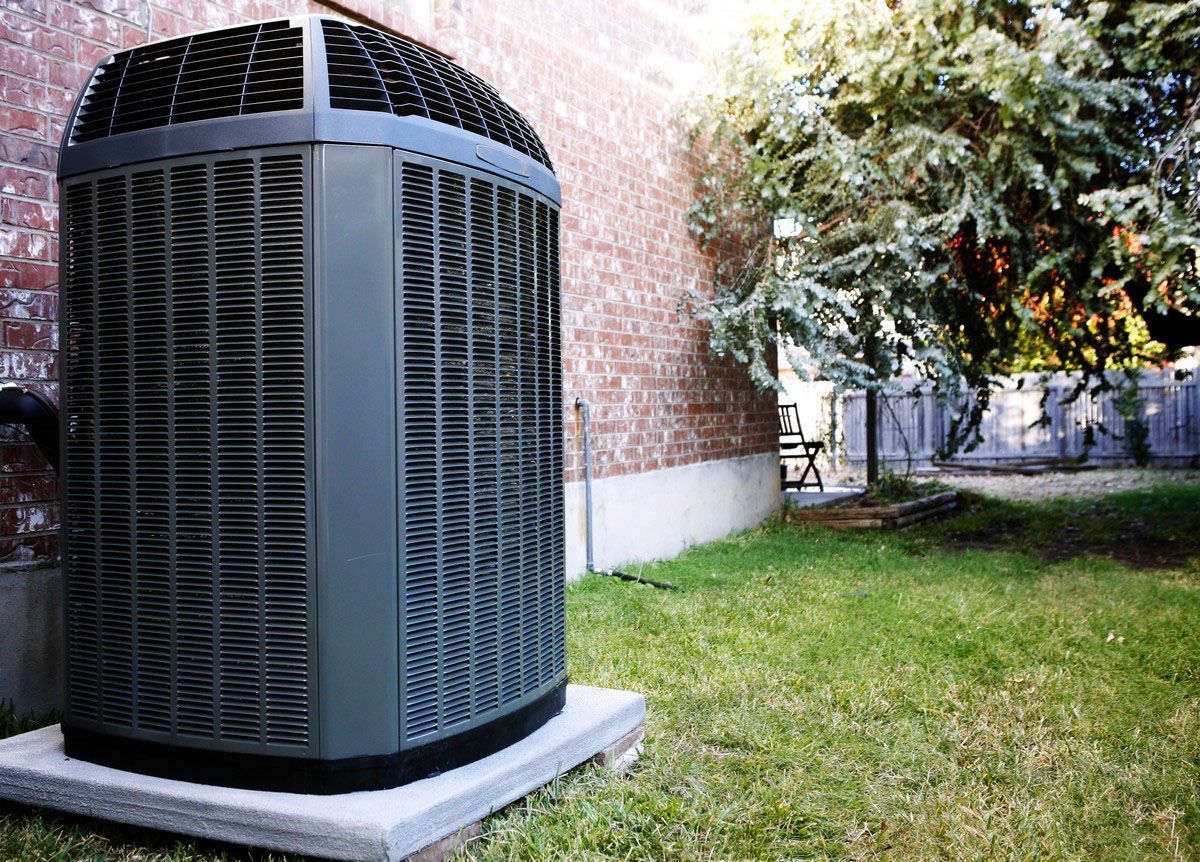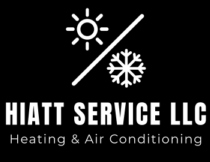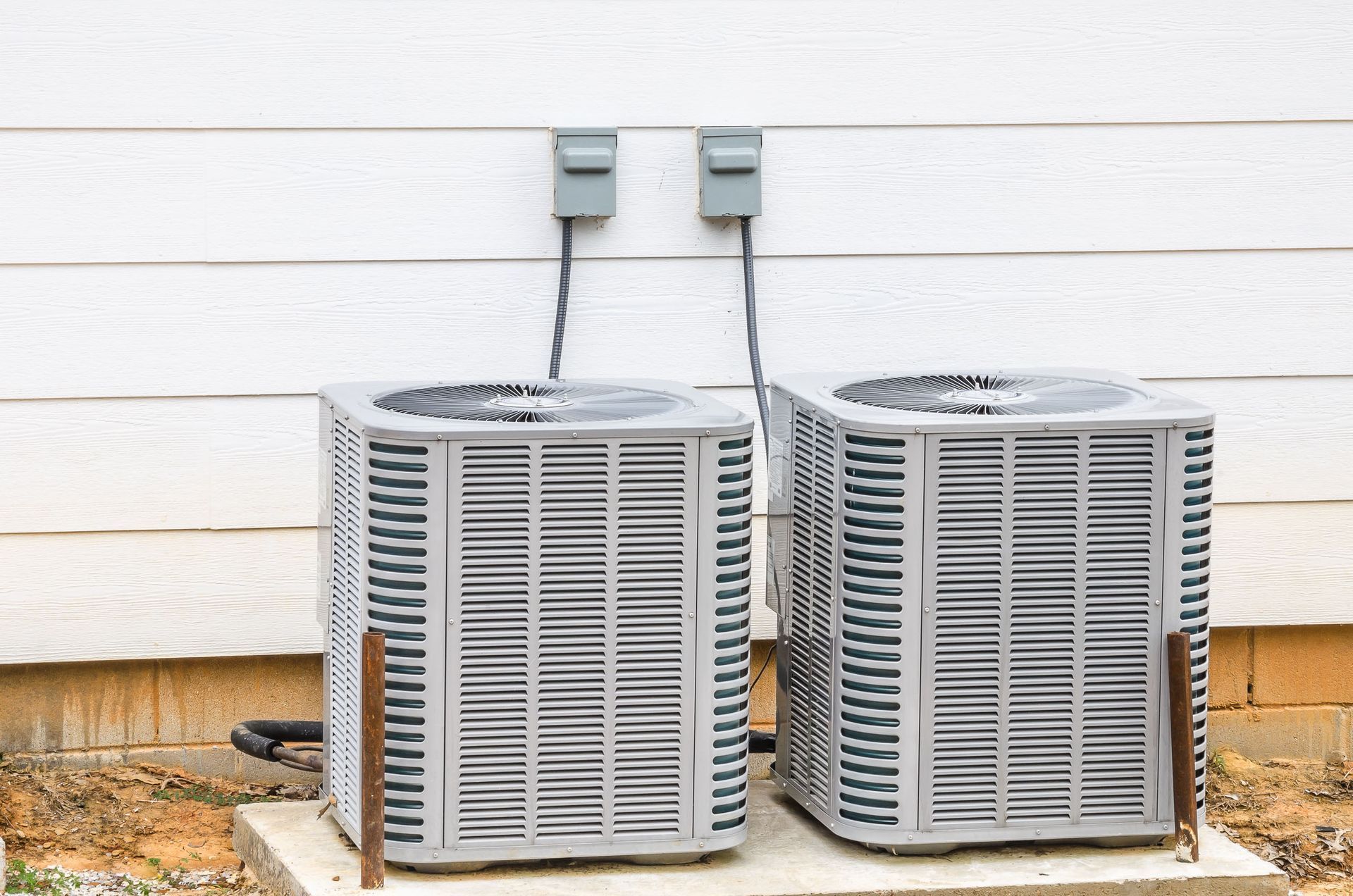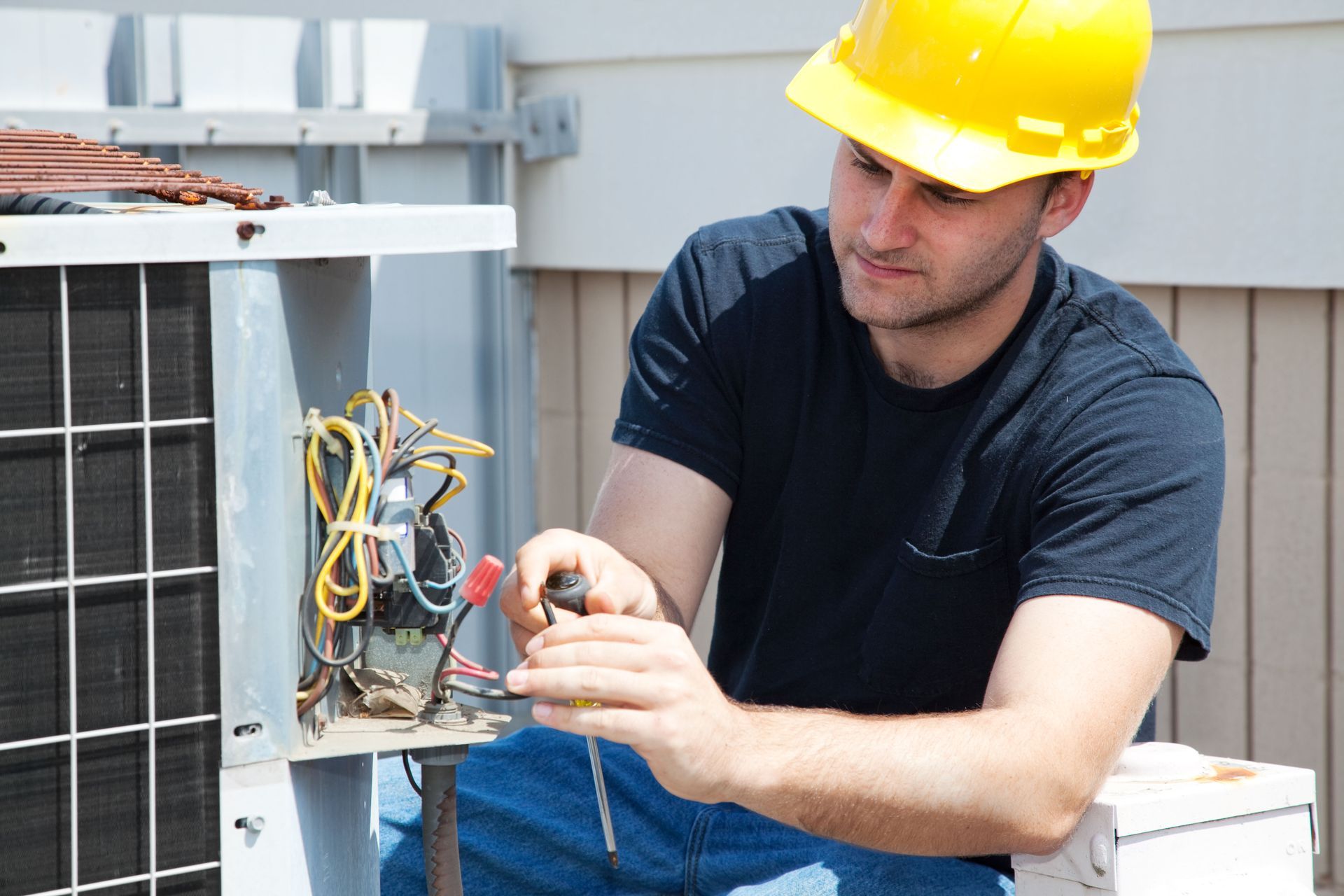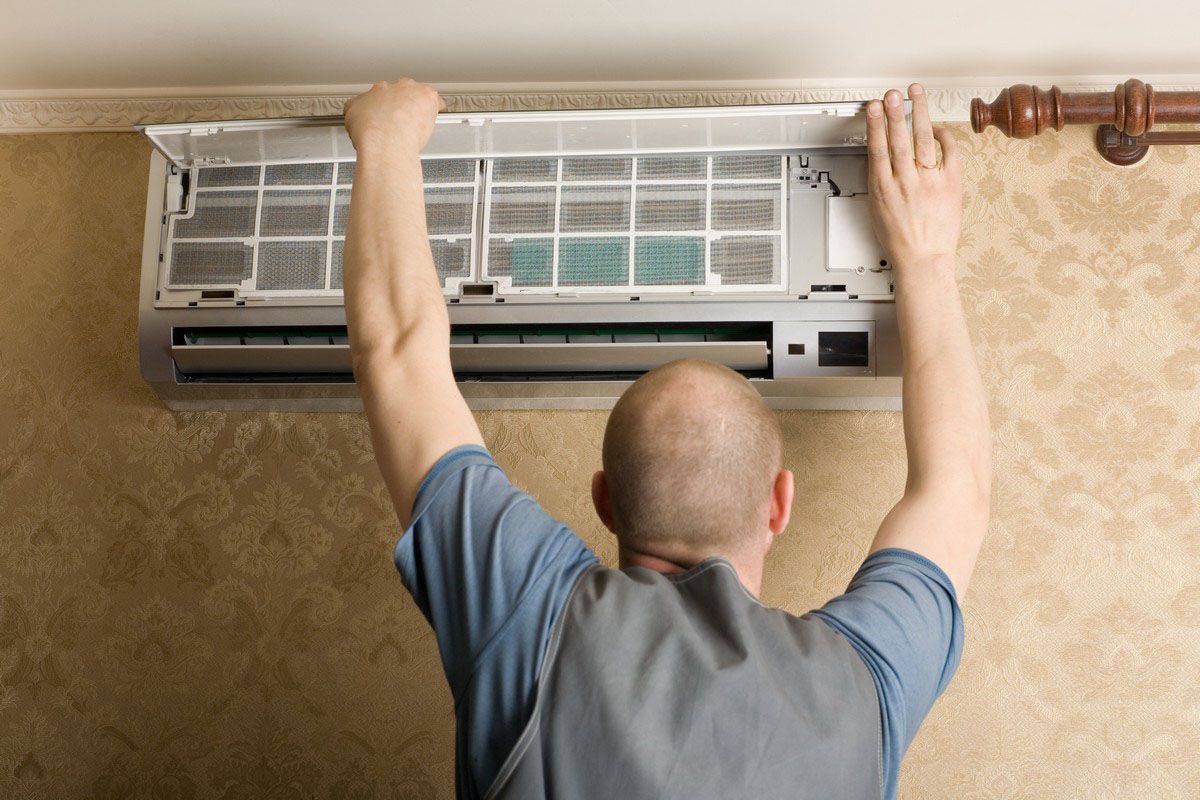October 16, 2025
Ensuring high indoor air quality is crucial for maintaining a healthy home environment. Expert HVAC companies recommend several strategies to keep your air clean and safe to breathe. This article will outline expert tips on how to maintain your home's air quality effectively.
1. Regular Maintenance of HVAC Systems
1.1 Schedule Routine Inspections
One of the most effective ways to ensure optimal air quality in your home is by scheduling routine HVAC inspections. These inspections help identify potential issues that could compromise the efficiency of your system, ensuring it operates smoothly and effectively. Regular inspections also allow professionals to clean components, preventing harmful particles from circulating in your home. Furthermore, scheduled check-ups can help prevent costly repairs by catching small problems early, thus extending the life of your HVAC system. Homeowners who neglect this maintenance step often face decreased air quality, increased utility bills, and higher repair costs in the long run.
1.2 Replace or Clean Air Filters
Air filters play an essential role in maintaining your home's air quality by trapping dust, pollen, and other airborne particles. According to This Old House, you should replace your air filters every one to three months to maintain air quality. Neglecting to change filters regularly can cause these particles to accumulate, reducing efficiency and allowing contaminants to recirculate. Clean air filters ease the burden on your HVAC system, improving its performance and longevity while also contributing to healthier indoor air. Regular filter maintenance is one of the simplest ways to ensure you and your family are breathing clean, pollutant-free air.
1.3 Clean Ductwork Periodically
Ductwork plays a critical role in distributing treated air throughout your home, and keeping it clean is vital for air quality. Over time, ducts can accumulate dust and debris, which may continue circulating if not addressed. Periodic cleaning of the ductwork can drastically reduce the incidence of allergens and pollutants in the air. Professional duct cleaning services use specialized tools to remove buildup, helping to ensure only clean, conditioned air is dispersed. Ignoring duct cleanliness can lead to the proliferation of mold and mildew, posing health risks and deteriorating air quality.
1.4 Maintain Outdoor Units
Outdoor units are integral to the operation of an HVAC system, but they are often neglected when people think about air quality solutions. These units can collect leaves, dirt, and debris, which can obstruct airflow and reduce system efficiency. Regular cleaning and clearing of the outdoor unit ensure it operates optimally, boosting the system's overall ability to maintain clean air indoors. Additionally, maintaining clear space around the unit prevents overheating and potential damage. By keeping these units in peak condition, homeowners can enhance the energy efficiency of their HVAC systems while supporting overall air quality inside their homes.
1.5 Invest in a Maintenance Plan
Investing in a maintenance plan with a trusted HVAC professional can ensure consistent air quality management. Maintenance plans typically offer scheduled inspections, discounts on services, and prompt priority service, providing peace of mind when it comes to HVAC care. This proactive approach not only prolongs the lifespan of your equipment but also helps maintain high air quality levels. Through regular touchpoints, professionals can adjust settings, tighten connections, and provide insights into better home air care. Ultimately, such plans are a wise investment that help keep the intricate components of HVAC systems performing at their best.
2. Improve Ventilation
2.1 Open Windows and Doors
Improving ventilation is one of the most straightforward approaches to enhancing indoor air quality. Simply opening windows and doors allows fresh air to circulate, replacing stale indoor air with oxygen-rich outdoor air. This exchange helps dilute indoor pollutants, reducing the concentration of harmful particles and improving air quality. During times of mild weather, natural ventilation can drastically improve the home's environment without the need for energy consumption. However, it's important to ensure outdoor air quality is safe before adopting this strategy, as pollutants from outside could inadvertently lower indoor air quality.
2.2 Use Exhaust Fans in High Moisture Areas
Exhaust fans serve numerous purposes, including the significant role they play in improving ventilation in moisture-prone areas such as kitchens and bathrooms. Moisture from cooking and bathing can lead to mold and mildew if not appropriately managed. Exhaust fans work to draw out excess moisture and odors, preventing the proliferation of these dangerous particles. Effective use of exhaust fans keeps humidity levels in check and ensures air circulates freely. A well-ventilated home is less prone to mold-related health problems, maintaining a healthy living space for its occupants.
2.3 Install Energy-Recovery Ventilators
Energy-recovery ventilators (ERVs) are an effective option for improving ventilation while maintaining energy efficiency. ERVs work by transferring heat between incoming and outgoing air streams, reducing energy costs associated with heating and cooling. By bringing in fresh air and expelling stale air, they maintain high air quality standards consistently, without overburdening your HVAC system. ERVs are particularly beneficial in tightly sealed, energy-efficient homes that often lack sufficient air exchanges. By incorporating such systems, homeowners can efficiently balance energy usage with optimal ventilation, supporting healthier home environments.
2.4 Avoid Blocking Air Vents
Blocked vents can adversely affect ventilation and your home's air quality. When vents are obstructed by furniture, drapes, or clutter, the airflow is reduced, restricting the HVAC system's ability to circulate air efficiently. This inefficiency can result in uneven temperatures and stagnant zones where dust and allergens accumulate. To ensure optimal performance, homeowners should regularly check that all vents are clear and unobstructed. Proper airflow not only enhances air quality but also optimizes the HVAC system's energy efficiency, reducing operational costs.
2.5 Utilize Ceiling Fans
Ceiling fans are versatile tools that can greatly enhance ventilation in any home. By moving air around the room, they help maintain consistent temperature and air circulation, reducing reliance on heating and cooling systems. Ceiling fans can keep indoor air moving, making the home feel cooler and fresher even with the windows closed. Using fans can complement air conditioning or heating appliances, potentially lowering energy costs. By adjusting fan direction according to the season, homeowners can capitalize on their heating and cooling systems' efficiency while maintaining high air quality standards.
3. Manage Humidity Levels
3.1 Install Humidifiers or Dehumidifiers
Humidity control is crucial for maintaining indoor air quality and comfort. Installing humidifiers and dehumidifiers helps in maintaining optimal humidity levels, which should be kept between 30% and 50%. Excessive humidity promotes the growth of mold, dust mites, and bacteria, whereas low humidity levels can cause health issues like dry skin and respiratory discomfort. Humidifiers add moisture to the air, preventing dryness, while dehumidifiers remove excess moisture, keeping mold and allergens at bay. By managing humidity, homeowners can enhance air quality, protect their home, and create a more comfortable living environment.
3.2 Monitor Indoor Humidity
Regularly monitoring indoor humidity can help address concerns before they become significant problems. Homeowners can use hygrometers or smart thermostats to track humidity levels, providing real-time data and alerts to ensure conditions remain ideal. When optimal levels are maintained, the presence of dust mites and mold spores is minimized, resulting in improved air quality. Ensuring humidity remains balanced also protects home infrastructure, such as wood furniture and wallpaper, from moisture-induced damage. Effective monitoring and adjustment can prevent the exacerbation of allergies and other respiratory conditions, promoting health and well-being.
3.3 Seal Windows and Doors
Sealing windows and doors is an essential step in managing indoor humidity and maintaining your home's air quality. Draughts and leaks allow external air to enter or escape, disrupting carefully maintained indoor conditions. Poor sealing can lead to increased energy usage and compromised comfort, as the HVAC system must work harder to maintain desired conditions. Proper insulation keeps undesirable external conditions at bay, supporting efficient humidity control and ensuring consistent air quality. Regular inspection and maintenance of seals can contribute significantly to energy savings and a healthier home atmosphere. Be sure to reach out to Hiatt Service LLC today for more information on our professional HVAC company!
